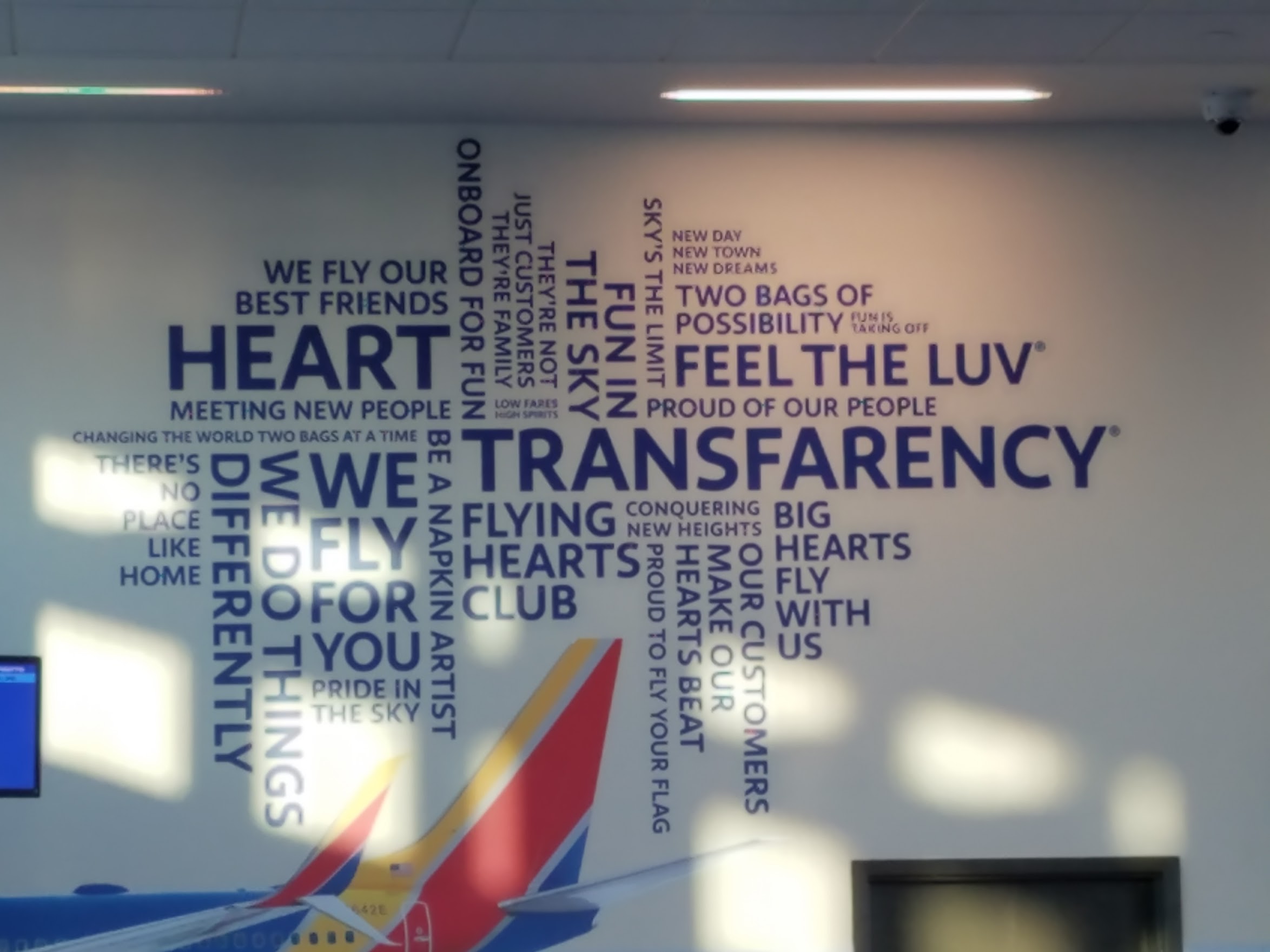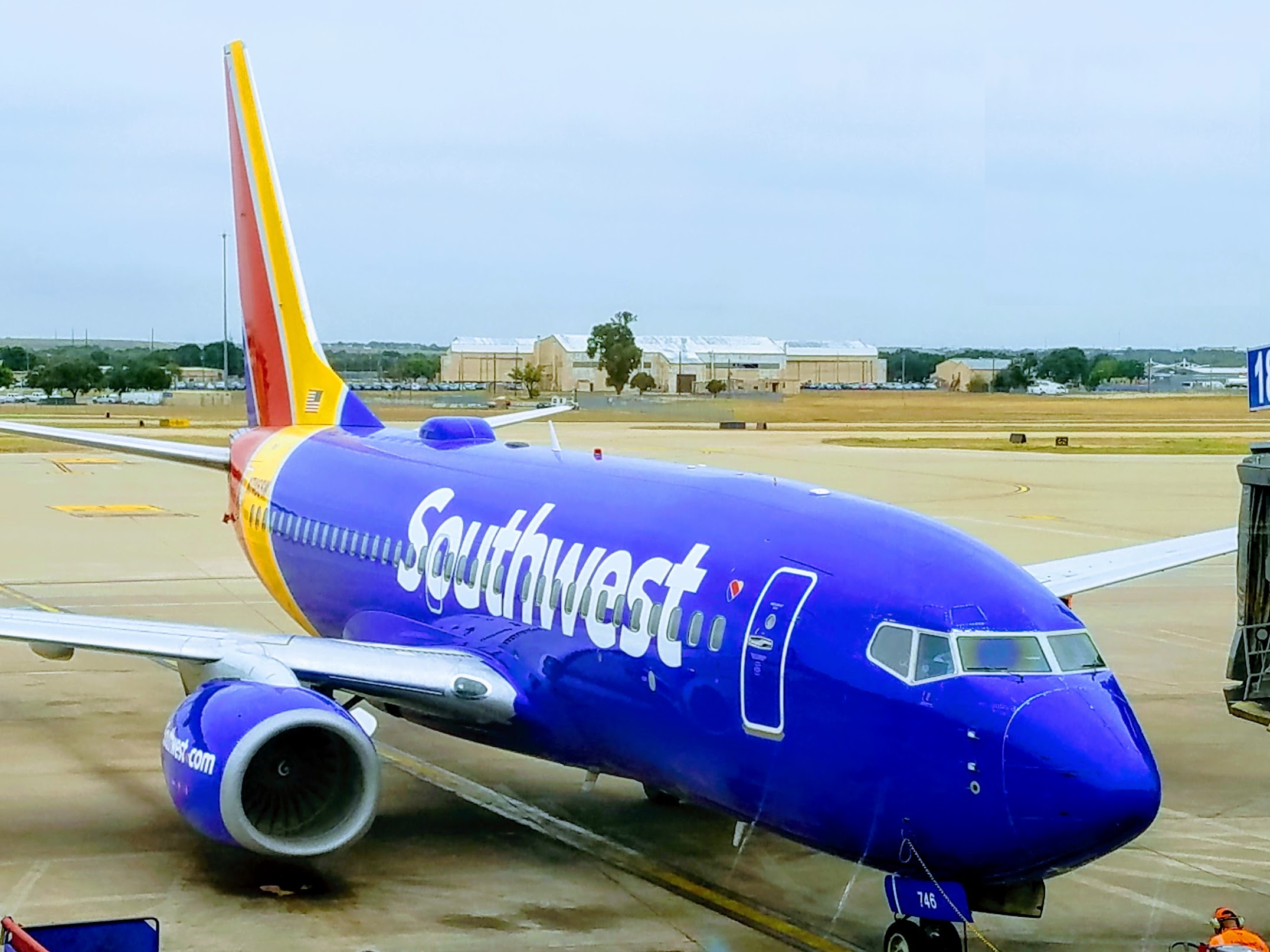The three largest U.S. airlines pursue a curious strategy. “Basic economy” endeavors to earn more money by offering a worse product. In most businesses the goal is to offer a better product at a lower price. Not so in the U.S. airline industry, which is protected by competition by locking up gates at congested airports, through foreign ownership restrictions, and because of the high regulatory hurdles involved in starting a new carrier.
The hope of basic economy is that the product will seem so bad that many customers won’t buy it, spending more money to avoid the fare’s restrictions that typically include boarding last (forced to gate check your carry on bag), no ability to pay for seat assignments at booking, no upgrades, and reduced mileage-earning. United takes this several steps further, banning full-sized carry on bags outright and refusing to allow basic economy passengers without checked bags to check in online, forcing long waits in line at the airport check-in desk.
- Initially the idea was to offer basic economy fares, giving customers less when fares are matching what Spirit and Frontier offer
- Then they realized that business travelers would avoid the fares, and basic economy was a useful way to segregate business and leisure travelers (given the demise of advance purchase and Saturday stay restrictions on the lowest fares)
Even JetBlue and to some extent Alaska have picked up on the strategy. There’s a herd mentality in the airline industry in part enforced by Wall Street. An airline claims a strategy is successful, and investors pressure competitors not to leave money on the table.
Southwest though has a long history of profits and margins that have eluded much of the industry, and they haven’t gone down the same fees and restrictions rabbit hole. They are the largest domestic airline in the country. They do not have change fees or checked bag fees (for up to 2 bags per passenger). They don’t have seat fees, without assigned seats, but they do charge to be at the front of the boarding queue which means earlier dibs at seat selection.

While I didn’t expect a shift in Southwest’s model any time soon last month it was revealed that Southwest was surveying names for a new fare type which could have been Basic Economy.
Now Southwest’s CEO has made it unequivocably clear in an address to employees that they will not adopt a basic economy fare.
In a weekly address Kelly provides to employees updating them on the carrier’s news, the CEO said: “I’m on the record many times saying that Southwest—at least as long as I’m around—will never do basic economy, so I’m on the record with that.”
…Kelly said that basic economy “is a fare category that our competitors use to try to compete with us, and it’s just not a very good product.”
…“You know, the one thing that the article got right was the last line, and I’ll just quote it to you, ‘The passion of loyalty of Southwest Customers makes the very idea of a Southwest basic economy so difficult to conceive,’ ” he said. “And I couldn’t agree more.”

This is good to know – especially because there was nothing mealy mouthed about it the way executives usually speak (‘nothing to announce at this time’). And yet when fellow Dallas-based airline CEO Doug Parker talks about Gary Kelly’s Southwest he says “go fly the cattle car.”


Good move as usual by Southwest. As you say, a business needs to have a clear value proposition to gain customer loyalty. Southwest has that:
Consistency of customer experience, especially with staff
No fees except for add-ons (board first, drinks, wifi)
A simple and clear boarding process
Single plane type allowing more flexibility
Because of all of that, they have created a class of customers who look to book Southwest every time because they value those things. This allows them to charge a fare premium in many markets, or to boost up operations so that they can gain economies of scale.
Delta has a pretty clear value proposition. Alaska and Jetblue do as well. Obviously, American and United are struggling.
Well, it’s nice to believe a company can be successful by offering a good product. But what if it’s not true? Reality can suck sometimes. The reality is that Spirit and Frontier have proven that if you offer a bare bones and inferior airline product, but at a very low price, a large percentage of air travellers will choose it. So now you’re a competitor of Spirit and Frontier. You can watch your market share slip away, or you can take competitive steps to retain those customers and curtail the growth of these new formidable competitors.
Anyone who believes that Southwest’s decision to NOT compete on price and service levels with Spirit and Frontier is risk-free knows NOTHING about commercial aviation. It’s very risky — perhaps even more risky than offering basic economy. Unless you live in a cave, you already know that the real low fare leaders in USA aviation travel are now Spirit and Frontier. Southwest’s market leadership days are over. Every day, more people understand that if they want low airfares, they should shop with Spirit and Frontier. Southwest used to be feared by United, Delta and American. They don’t fear Southwest any more. They worry far more about Spirit and Frontier. That’s not a good sign for Southwest, even if as consumers, we prefer more comfortable air service to less comfortable air service.
@chopsticks
LOL. I quite literally don’t know where to start with how far apart your perception and reality are.
Southwest is absolutely more like the Big 3 than Spirit or Frontier. But that doesn’t mean the Big 3 don’t fear Southwest. They are just more targeted. When WN does a fare sale between major routes, the majors often will match their STANDARD fares. WN isn’t a LCC by any means. They do not offer the lowest fares. They do no nickle-and-dime you. They are very flexible. Why many media outlets continue to refer to them as LCC is beyond me.
WN offers just an entirely different value proposition from ANY of the other airlines. You will likely pay a bit more these days for WN, but you’ll also have more clarity in what you get. You will always get a seat, 2 checked bags, a snack, and no hassle if you change your mind. For non-hub travelers, there’s a very significant bonus for: more direct flights. If you don’t live at a hub, Southwest is hands-down more convenient. Even if you live at a hub, the Southwest-effect is still at play. If WN didn’t fly out of DAL, you can guarantee that fares would go back up at DFW (Wright amendment repeal in the early 2000’s is perfect example). Ditto for ATL, MSP, etc.
Maybe i’m biased, but WN is my go-to for travel from my flyover state. I’ve got an AA redemption on AA/CX/JL (and maybe QR if I can swing it), yet my positioning flights are on WN because I can change/cancel and not get dinged $hundreds because something came up.
To get the same convenience on AA/DL/UA, I have to pay full-fare. Not even top tiers at any of the airline rewards programs get a that as a benefit. So compare like-for-like, and WN comes out so far ahead it’s kind of shocking.
Why would I even bother with with legacies?
WN runs a great operation but it comes at a price. In fact I usually find I pay more to fly WN than for comparable flights on UA, AA, DL. (I don’t fly Spirit or other gutter carriers as their product and service doesn’t meet my needs).
For example I fly WN from OAK-BUR even though SFO-LAX is often cheaper on other carriers. I pay a premium because OAK and BUR are more convenient, cheaper parking, time saved. Also because I can change or cancel without paying a $200 penalty per person.
But it does not always make sense to pay that premium, when my dates are locked or when I want extra legroom for a transcon. So WN is not the best choice all the time. No airline is.
The free bags is a nice gimmick but not really relevant to anyone who holds airline credit cards or elite status.
@Boraxo I’ve found the same thing. Kudos to WN for sticking to a consistent product and not mucking it up, however, in recent years the value proposition for flying WN has plummeted, especially for last minute fares. It’s become so bad that I’ve seen WN coach seats going for as much as the other 3 were charging for F/J front cabin fares.
I have to chuckle at both Gary and chopsticks trying to compare WN to Spirit and Frontier while carefully avoiding mentioning America’s true LCC, America’s most profitable airline, Allegiant.
How funny, where do they find these out-of-touch hypocritical people? The very airline tat started the low-cost frenzy now says they will never do it? WTF! I have never flown Southwest and I never will. The ultimate low-cost fraudsters. Thats all.
I love Southwest. I find their staff to be cheery, great for being on time, no fee bs. I am a bit worried about their 737MAXes – I hope they can return them.